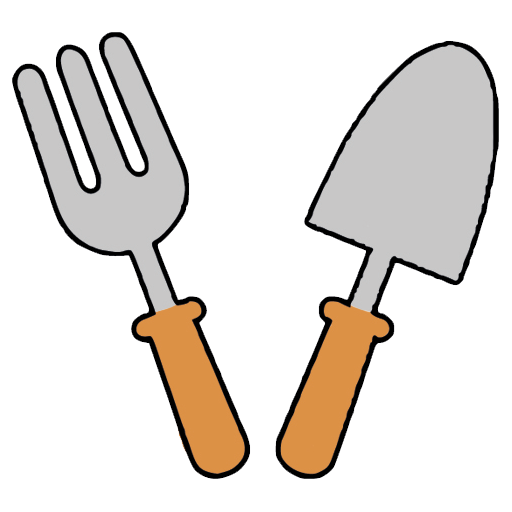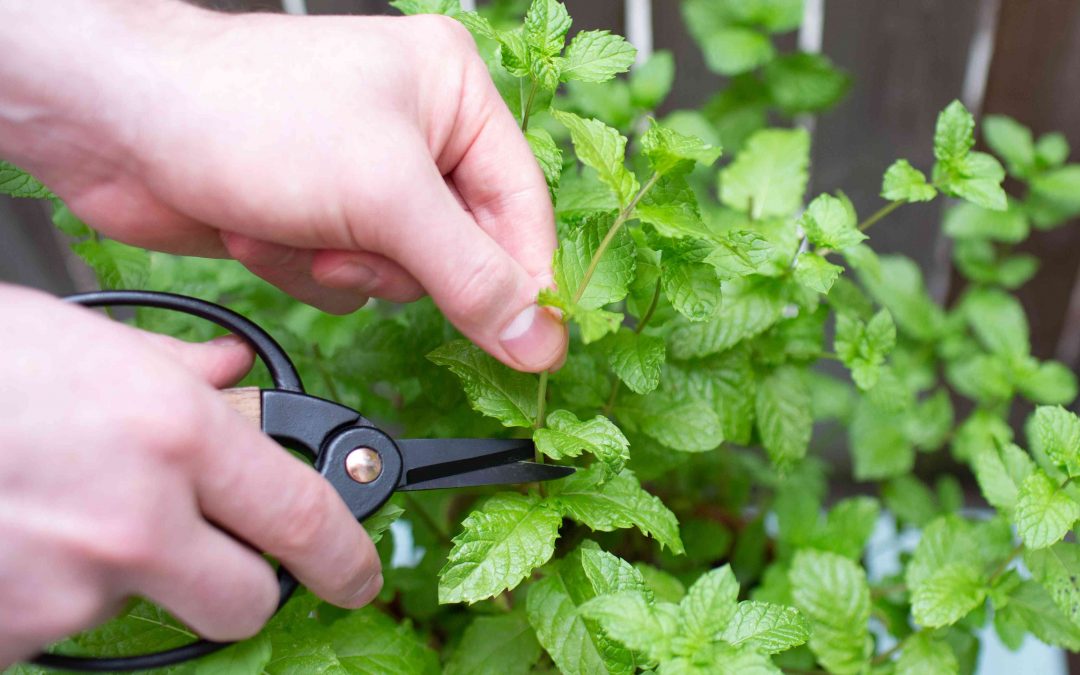Pruning is the fastest way to get healthier, bushier mint instead of tall, floppy stems. This how to prune mint guide shows the exact cuts to make, when to do them, and how to avoid the mistakes that weaken plants indoors.
Contents
- 0.1 Why pruning mint works so well
- 0.2 The best time to prune mint
- 0.3 How to prune mint step-by-step (the exact cut)
- 0.4 The easiest pruning method: pinch little and often
- 0.5 What to do if mint is leggy (fast fix)
- 0.6 How much mint can you prune at once?
- 0.7 Pruning mint in pots: the common mistakes
- 0.8 Long-tail mini fixes (quick answers)
- 0.9 How to store pruned mint (so it doesn’t go to waste)
- 0.10 FAQs About Pruning Mint
- 0.11 Final Thoughts on Pruning Mint
- 0.12 Related Articles
- 1 Indoor Garden Care – Definitive Guide
Quick answer: how to prune mint
Pinch the top 2–5 cm off stems to force bushier growth
Cut just above a leaf pair (nodes = new side shoots)
Never remove more than ⅓ of the plant in one go
Harvest little and often (it counts as pruning)
If mint is leggy, cut back harder and improve light
Do this first: Find the highest growing tip on your mint and pinch it out above a leaf pair (you’ll usually see new shoots within 7–10 days).
Why pruning mint works so well
Mint naturally tries to grow upward to find light. When you remove the top growing tip, the plant switches to pushing out side shoots from the leaf nodes, which makes it thicker, leafier, and more productive.
This is why “pinching” works even if you only take small amounts: the plant reads it as a signal to branch.
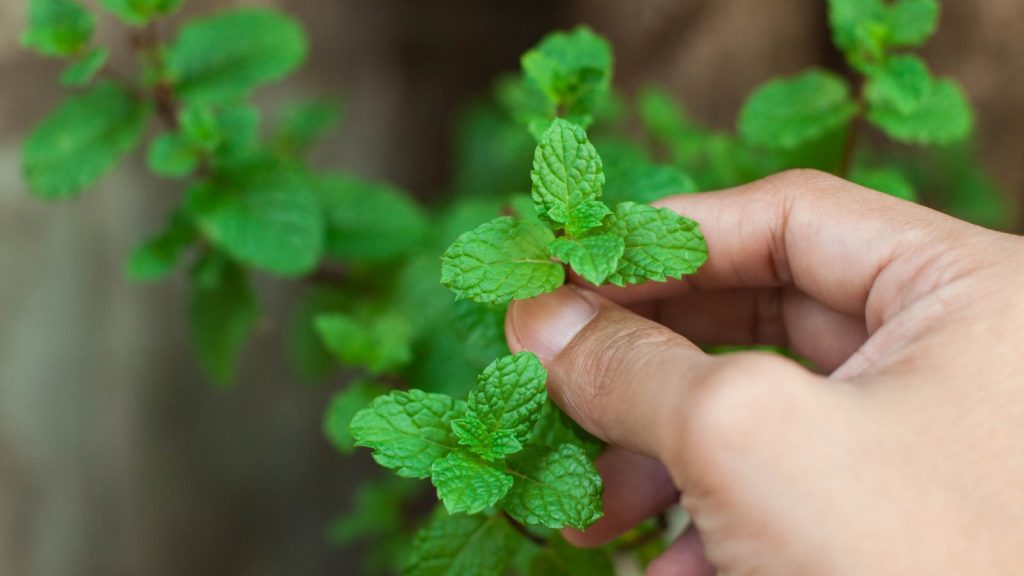
The best time to prune mint
Mint is most forgiving when it’s actively growing. You can still prune at other times, but recovery is quicker during stronger growth.
Good timing rules:
Light, regular pinching: any time the plant is putting out new tips
Bigger cut-backs: when the plant is clearly growing (new leaves weekly)
Avoid heavy pruning right after repotting or when the plant is stressed (drooping, yellowing)
If your mint is still getting established (or you’re not sure your setup is right), How to Grow Mint is a useful companion read.
How to prune mint step-by-step (the exact cut)
Pruning mint is simple once you know where to cut. You’re aiming to cut just above a node (a node is where leaves join the stem).
Step 1: Choose the right stem
Pick a healthy stem that’s tall enough to have at least 2–3 leaf pairs below your cut.
Step 2: Cut above a leaf pair (node)
Make your cut 0.5–1 cm above a leaf pair. That’s where the plant will usually split into two new shoots.
Step 3: Repeat across the plant (don’t just prune one stem)
To keep the plant balanced, prune several stems lightly, not one stem heavily.
If you want cleaner, more precise cuts (especially indoors), micro-tip pruning snips make it easier to avoid crushing stems.
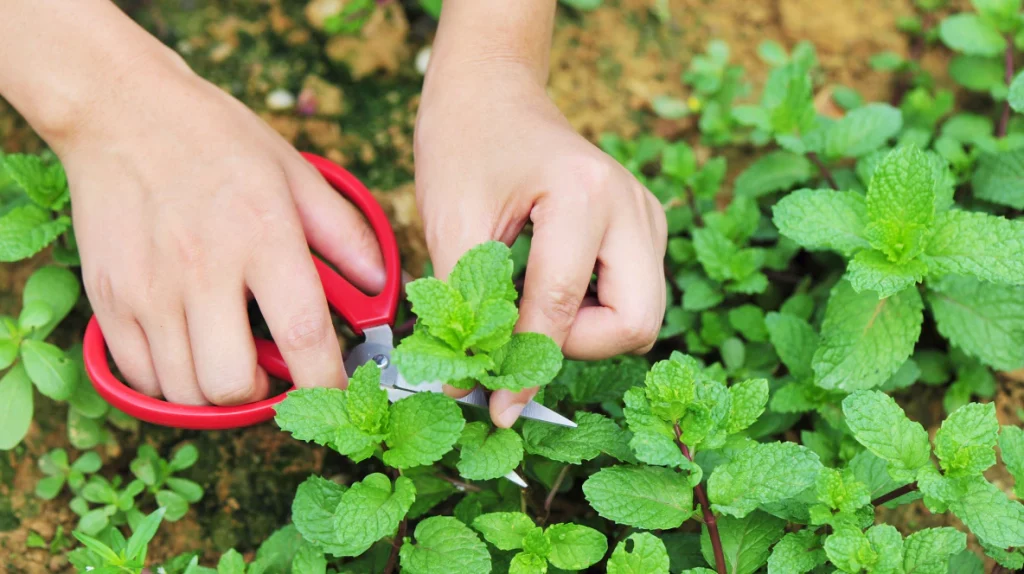
The easiest pruning method: pinch little and often
If you want mint to stay compact and productive, you don’t need dramatic pruning. The simplest method is “pinch and use”:
Every time a stem reaches 10–15 cm, pinch out the top
Use the fresh tips in tea, cooking, or garnish
Repeat weekly or whenever it looks like it’s stretching
This turns pruning into a routine, which keeps indoor mint from getting leggy.
If you like routines rather than guessing, Indoor Plant Maintenance Routine fits nicely alongside this approach.
What to do if mint is leggy (fast fix)
Leggy mint is almost always a light problem (long stems, fewer leaves, reaching toward the window). Pruning helps, but you’ll get the best result when you fix the cause too.
Quick “reset” cut for leggy mint
Cut stems back by about half, always above a leaf pair
Move the pot to a brighter spot
Pinch new tips as soon as they appear to keep it bushy
If you’re unsure what “bright enough” means indoors, Best Lights for Indoor Gardening makes it easy to judge and upgrade without overcomplicating things.
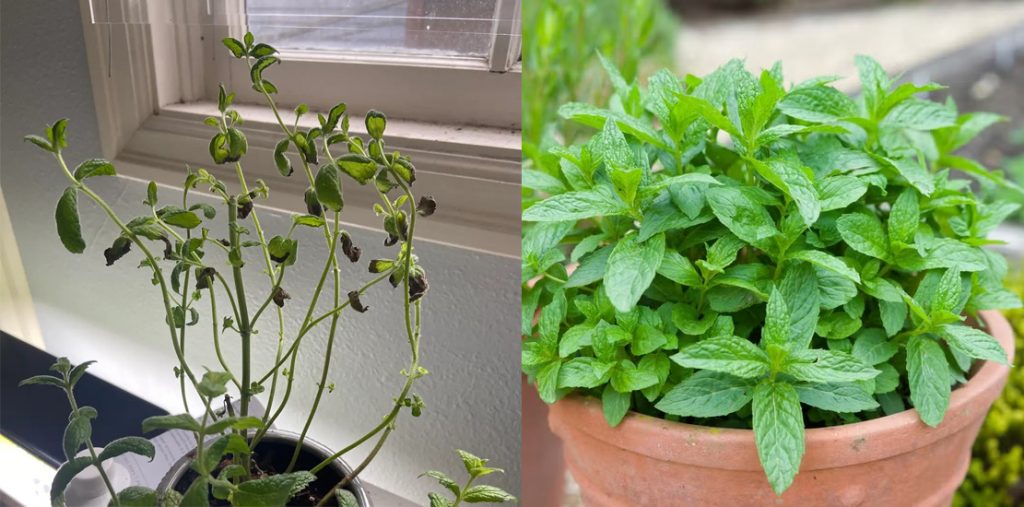
How much mint can you prune at once?
A good indoor rule is no more than one-third of the plant at a time. Mint is tough, but removing too much at once can slow recovery, especially if light is limited.
If you need a bigger harvest:
Take smaller amounts from multiple stems
Leave plenty of leafy growth behind
Follow up with regular pinching rather than another heavy cut
Pruning mint in pots: the common mistakes
Mint is easy, but a few indoor habits can make pruning feel like it “doesn’t work”.
Mistake 1: Cutting too low with no nodes left
If you cut below the leaf nodes, you remove the plant’s “restart points”. Always leave at least one or two nodes on each stem.
Mistake 2: Only pruning one tall stem
The rest of the plant keeps stretching, and the shape becomes uneven. Spread pruning across the whole plant.
Mistake 3: Overwatering after pruning
After pruning, the plant often uses less water for a few days. Let the top of the compost dry slightly between waterings.
If your pots tend to stay wet and you’re noticing issues, Indoor Plant Watering Mistakes is a helpful follow-on.
Long-tail mini fixes (quick answers)
Can I prune mint down to the soil?
You can do a hard cut-back, but it’s better to leave a few centimetres of stem with nodes if possible. If you cut to soil level, regrowth can be slower indoors.
Why is my mint turning woody at the base?
Older stems can harden with age. The fix is simple: prune back the older stems and encourage fresh new growth from lower nodes.
How do I prune mint for more leaves (not longer stems)?
Pinch tips early and often, keep light consistent, and avoid letting stems get too tall before you cut.
What if mint keeps dying back after pruning?
That usually points to a bigger issue (light, soggy compost, pests). A quick check for sap-sucking pests is worth it; if needed, Indoor Plant Pest Guide: Identify and Treat Pests Fast helps you narrow it down.
How to store pruned mint (so it doesn’t go to waste)
Pruning gives you a lot of mint quickly, so it helps to have a simple “use or store” plan:
Use fresh tips immediately
Dry small bunches for tea
Freeze chopped mint in ice cube trays with water
If you regularly harvest a lot, a small herb drying rack can make drying tidy and mess-free indoors.
FAQs About Pruning Mint
How often should I prune mint?
Light pinching can be weekly during active growth. Bigger cut-backs are best done occasionally, not constantly.
Where exactly do I cut mint?
Cut just above a leaf pair (node). That’s where the plant will branch into new shoots.
Should I prune mint flowers?
Yes, if you want more leaves. Letting mint flower can reduce leaf production and the flavour can change slightly.
Can pruning make mint grow faster?
It can make mint grow bushier and more productive. For “faster” growth, light and steady watering matter more.
Final Thoughts on Pruning Mint
Pruning mint doesn’t need to be dramatic — the best results come from small, regular pinches that force the plant to branch. Cut just above a leaf pair, don’t remove more than a third at once, and fix light if the plant is stretching.
Once mint gets into that “bushy loop”, it becomes one of the easiest indoor edibles to keep going.
Related Articles
GIVE YOUR WHOLE INDOOR GARDEN A GLOW-UP
Indoor Garden Care – Definitive Guide
Learn how to water, feed, position, and maintain all your houseplants so your new plant stands don’t just look good – they help your plants thrive long term.
